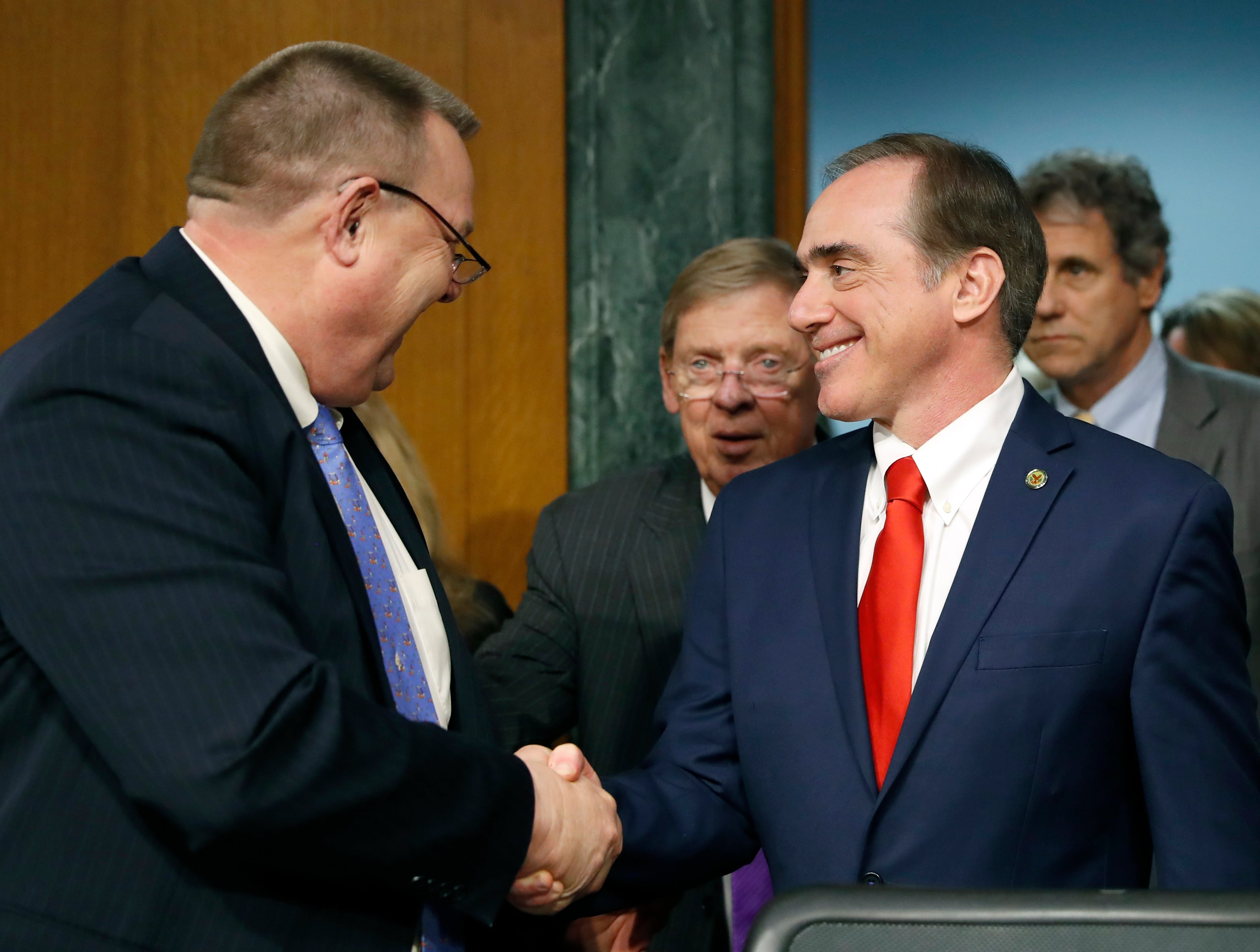WASHINGTON -- President Trump's nominee to lead the Department of Veterans Affairs promised that plans to offer in vitro fertilization services to injured veterans will go ahead in coming months, amid all the other changes at the department.
"We are moving ahead with coverage for service connected IVF treatments, absolutely. It's long overdue," Dr. David Shulkin, the current VA undersecretary for health, during his confirmation hearing on Wednesday.
Last month, just a day before Trump's inauguration, VA officials unveiled plans to offer the fertility treatments starting in March, in keeping with legislation approved by Congress last fall.
Limited fertility counseling is already available to veterans, and active-duty troops who suffer service-related injuries are eligible to receive advanced treatments, including IVF services. But existing rules had blocked VA from matching all of those military offerings.
Some advocates expressed concerns whether the VA change would move ahead, given the religious objections of some top Trump officials to the procedure and the president's recent order limiting new federal regulations without cuts in other areas.
Sen. Patty Murray, D-Wash., the leading lawmaker behind the change, told Shulkin she was very concerned that the new White House "in some reckless attempt to just reverse regulations will prevent that from happening."
Shulkin said the process for that regulation is unaffected, and he is committed to providing the services.
Earlier in the hearing, lawmakers asked Shulkin if he was given any pre-conditions or mandates from Trump before being offered the top VA post. He said no, and that he and Trump "shared the common vision that we have to do a lot better for our veterans."
Specifics on available IVF appointments and services will be outlined at local VA facilities in March, following a 60-day review period for the rule change.
Legislation passed by Congress covering veterans IVF treatments also included new rules for reimbursement of adoption expenses for veterans. VA officials said specifics of that program will be included in a future rules release.
Defense Department officials estimate nearly 2,000 troops received debilitating injuries to their groins or genital regions from 2000 to 2013, and another 300,000-plus experienced some type of head injury, which can also impact sexual performance or drive.
The Senate is expected to vote on Shulkin's confirmation later this month. Follow @LeoShane
Leo Shane III covers Congress, Veterans Affairs and the White House for Military Times. He can be reached at lshane@militarytimes.com.
Leo covers Congress, Veterans Affairs and the White House for Military Times. He has covered Washington, D.C. since 2004, focusing on military personnel and veterans policies. His work has earned numerous honors, including a 2009 Polk award, a 2010 National Headliner Award, the IAVA Leadership in Journalism award and the VFW News Media award.




